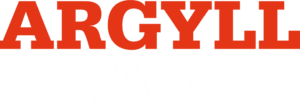The cart is empty!
Hot Dip Galvanizing Inspector Level 2 – Classroom
Hot Dip Galvanizing Inspector Level 2- Classroom

Course Overview
Classroom course designed to assist candidates in gaining the skills and knowledge to inspect Hot Dip Galvanized steel products.
Hot-dip galvanizing is a process commonly used to provide long-term protection to steel products from corrosion. Hot-dip galvanized steel requires a thorough inspection of the finish product to ensure compliance with relevant specifications.
Approved by the Institute of Corrosion (ICorr) and produced with the assistance of the Galvanizers Association, this Level 2 course will help students to gain the knowledge to inspect hot-dip galvanized steel products and gain an industry recognised qualification.
The course assumes all candidates hold ICorr Painting or Protective Coating Inspector approval (any level), or lent, and therefore have some knowledge of inspection philosophy. Some corrosion and coating knowledge is also important due to the large amount of corrosion problems which have arisen.
Course content
This Level 2 course content covers:
- Hot-dip galvanizing overview
- Corrosion mechanisms
- Surface preparation
- Galvanizing chemistry
- Inspection overview
- Organic coating on galvanizing
- Testing of galvanizing
- Coating Faults
- Handling and storage
- Coating repair methods
Approved by the Institute of Corrosion (UK) and recognised by the Galvanizers Association
Course pre-requiste
Candidates are required to:
1 |
Have a knowledge of inspection philosophy, surface preparation, anti-corrosion coatings and how to use common inspection instruments. |
2 |
Hold an ICorr Protective Coating Inspector (or equivalent) certificate and ideally hold a minimum of 12 months’ coatings related experience. Equivalent certifications include:
|
3 |
Seek advice if hold less than 12 months’ coating experience as they may still undertake the course and become certified once relevant experience has been obtained. Course can be taken for knowledge only without an examination. |
Qualification
The course is accredited by the Institute of Corrosion (ICorr). On successful completion of the course and relevant coatings related experience, candidates will become a certified Level 2 Hot Dip Galvanizing Inspector.
The certificate is valid for 5 years and can be renewed online prior to expiry.
Interested in this course?
Contact the Arygll Ruane team if you have any questions about this training course.



